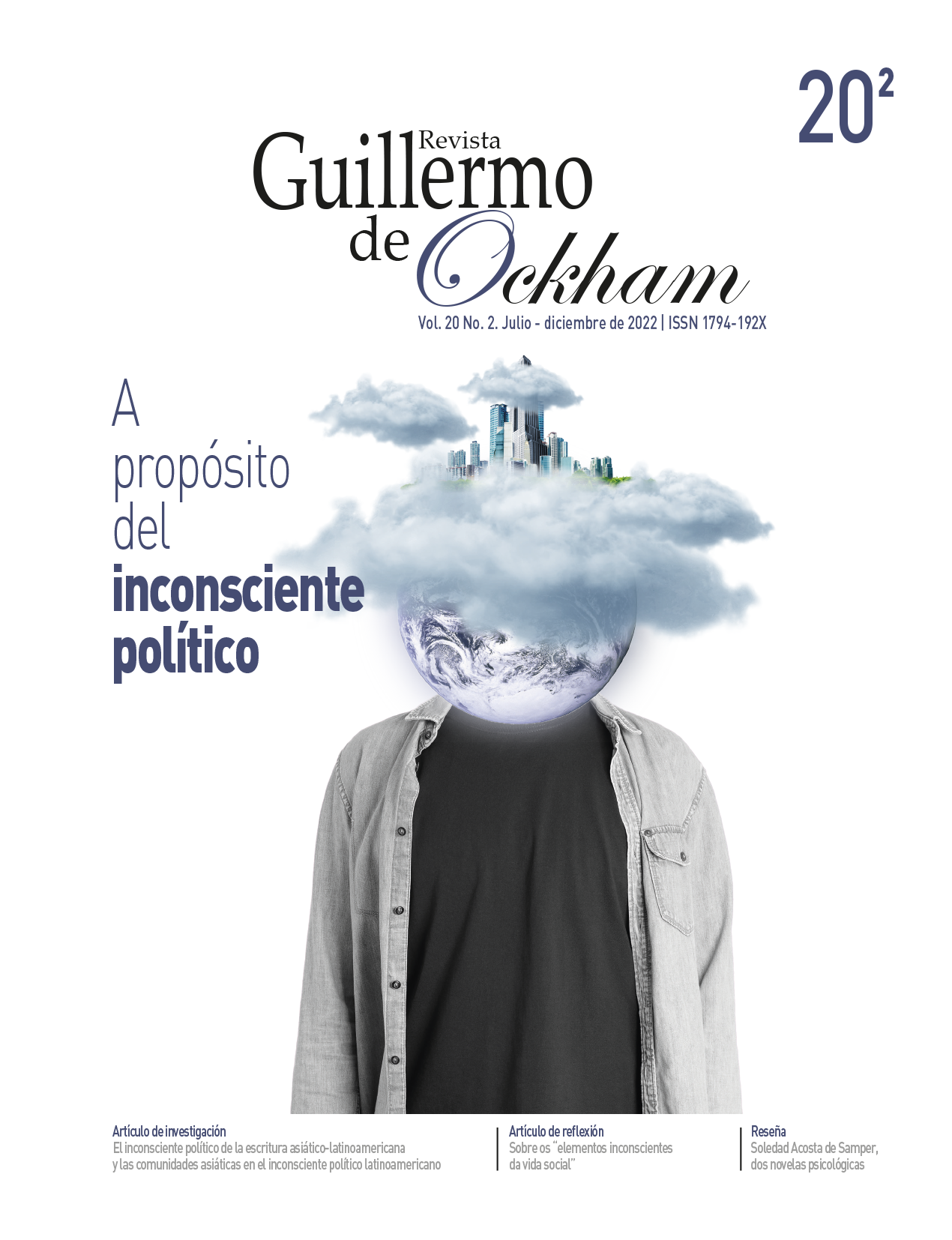The Revista Guillermo de Ockham provides an immediate and open access to its content, based on the principle of offering the public a free access to investigations to provide a global interchange of knowledge.
Unless otherwise established, the contents of this journal has a license with Creative Commons Attribution-NonCommercial-NoDerivatives 4.0 International (CC BY-NC-ND 4.0) http://creativecommons.org/licenses/by-nc-nd/4.0/
- Attribution: You must give appropriate credit, provide a link to the license, and indicate if changes were made. You may do so in any reasonable manner, but not in any way that suggests the licensor endorses you or your use.
- NonCommercial: You may not use the material for commercial purposes.
- NoDerivatives: If you remix, transform, or build upon the material, you may not distribute the modified material.
- No additional restrictions: You may not apply legal terms or technological measures that legally restrict others from doing anything the license permits.
Abstract
This article proposes a reflection on the application of the category of "unconscious" in politics. The article suggests that Marx's text, The Eighteenth Brumaire of Louis Bonaparte, in the reading of Lévi-Strauss, indicates a line of application of the concept that moves away from the Freudian tradition, in favor of a descriptive anthropological approach. The article shows that authors such as Franz Fanon have resorted to the Jungian notion of "collective unconscious" as an important methodological resource. Finally, the article suggests that political reflection would benefit from an approach to the methodological procedures of ethnography and ethnology.
Keywords:
References
Benjamin, Walter (2006). Passagens. Tradução de Irene Aron e Cleonice Paes Barreto. São Paulo: Editora da UFMG.
Boas, Franz (1911). Handbook of American Indian Languages. Part 1. Washington. Government Printing Office.
Clark, T. J. (2013). Por uma esquerda sem futuro. Tradução de José Viegas. São Paulo: Editora 34.
Fanon Frantz (2020). Pele Negra, Máscaras Brancas. Tradução de Sebastião Nascimento e colaboração de Raquel Camargo. São Paulo: Ubu Editora.
Freud, Sigmund (1974). Edição Standard Brasileira das Obras Psicológicas Completas de Sigmund Freud. Vol. XIV. Rio de Janeiro: Imago Editora.
Gay, Peter (1989). Freud. Uma vida para o nosso tempo. Trad. de Denise Bottmann. São Paulo: Companhia das Letras.
Groark, Kevin P. (2019). “Freud among boasians. Psychoanalytic Influence and Ambivalence in American Anthropology”. Current Anthropology, Vol. 60, Number 4, August.
Guevara, Ernesto Ché (1979). El socialismo y el hombre nuevo. México: Siglo XXI Editores.
Lévi-Strauss, Claude (1973). Antropologia estrutural. Tradução de Chaim Samuel Katz e Eginardo Pires. Rio de Janeiro: Tempo Brasileiro.
Marx, Engels (1982). Obras escolhidas. Tomo 1. Lisboa: Edições Avante.
Searle, John (1983). Intentionality. New York. Cambridge University Press.

 Perfil Google Scholar
Perfil Google Scholar







